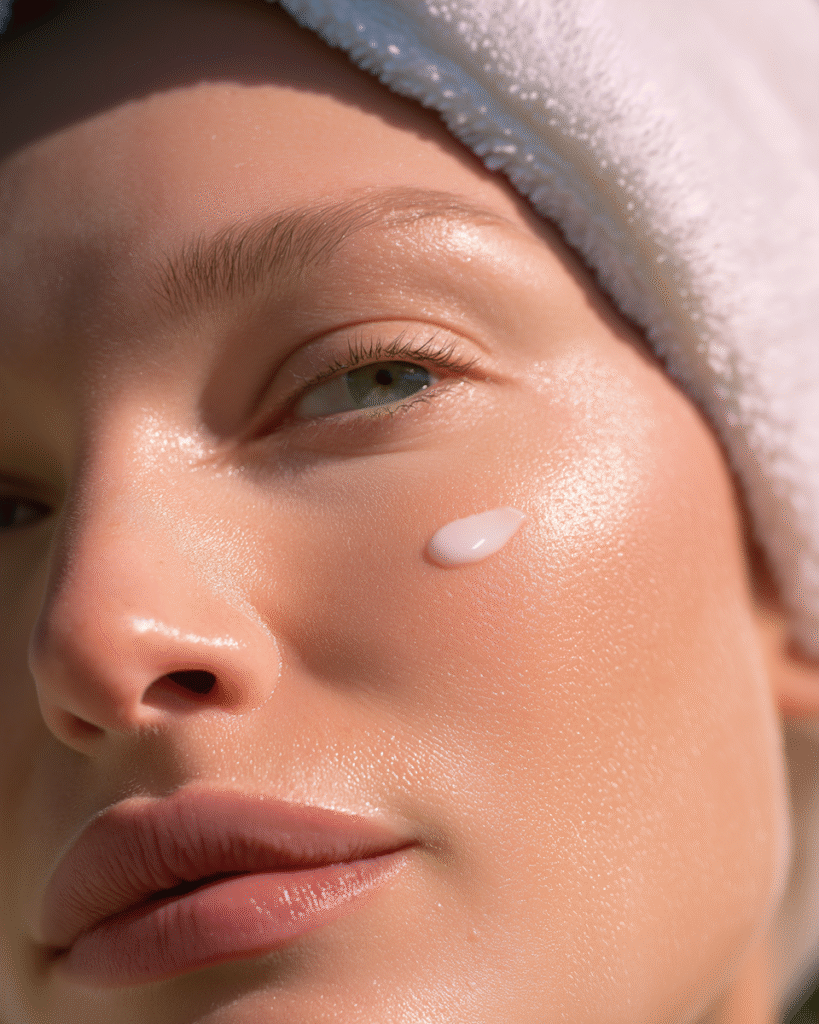Table of Contents
For millions of people, fashion isn’t just about aesthetics—it’s about comfort, safety, and avoiding irritation. If you have ever experienced itching, redness, or rashes from your clothing, you’re not alone. People with sensitive skin often struggle to find garments that don’t trigger discomfort. Luckily, there are now more options than ever that cater to skin sensitivities without compromising on style.
Whether you’re dealing with eczema, psoriasis, allergies, or general skin reactivity, this guide covers the best fabrics, fits, brands, and tips for building a wardrobe that keeps your skin happy.
🧼 Why Skin-Friendly Clothing Matters

Clothing sits against your skin all day, making the materials, dyes, and stitching especially important for people with sensitive skin. Wearing the wrong fabric or a garment treated with harsh chemicals can lead to:
- Itching or burning
- Rashes or flare-ups
- Allergic reactions
- Discomfort in hot or humid weather
This is why choosing the right clothing is essential—not only for comfort but also to avoid triggering skin conditions or worsening irritation.
🌿 Best Fabrics for People with Sensitive Skin
When shopping for clothing, your first priority should be breathable, natural, and chemical-free fabrics. Here are the top choices:
1. Organic Cotton
Soft, breathable, and pesticide-free. It’s ideal for t-shirts, underwear, and loungewear.
2. Bamboo Fabric
Naturally hypoallergenic and moisture-wicking. Bamboo is great for hot climates and sensitive skin.
3. Modal
A silky smooth, eco-friendly option made from beech trees. Modal feels gentle against the skin and resists shrinking.
4. Silk
Naturally temperature-regulating and non-irritating. Silk is luxurious and often used for nightwear.
5. Tencel (Lyocell)
Soft, breathable, and antibacterial. A fantastic modern fabric for people with sensitive skin.
Avoid: Wool, polyester, nylon, rayon, and clothing labeled as “wrinkle-free” or “stain-resistant”—these are often chemically treated and can cause irritation.
✂️ Design & Fit Tips for Sensitive Skin

In addition to fabric, design elements and construction play a major role in comfort:
- Tagless Clothing: Labels can scratch or cause flare-ups—opt for tagless options.
- Flat Seams or Seamless: Bulky seams may rub and irritate sensitive skin.
- Loose Fit: Tight clothes trap heat and moisture—go for a relaxed fit.
- Minimal Dye/Coloring: Choose light colors or undyed garments to reduce chemical exposure.
- Hypoallergenic Detergents: Wash all clothes with fragrance-free, non-toxic detergents.
💡 Pro Tip: Wash new clothes before wearing to remove finishing chemicals and residues.
🛍️ Recommended Brands for Sensitive Skin
Several brands now prioritize comfort, sustainability, and skin safety. Some of the top names include:
- Cottonique – 100% organic cotton, chemical-free clothing for adults and kids.
- PACT – Organic basics that are gentle on skin and ethically made.
- Boody – Bamboo clothing designed for breathability and hypoallergenic comfort.
- MORI – Excellent baby and adultwear made from bamboo and organic cotton.
- Hanna Andersson – High-quality cotton children’s clothes with flat seams and no harsh dyes.
🛏️ Sensitive Skin Sleepwear & Underwear
Sleepwear and undergarments are in direct contact with your skin for long hours. Make sure they’re:
- Free from elastic that can chafe
- Made with flat or invisible seams
- Tagless and soft around waistbands
- From breathable, non-synthetic materials
🛌 This can help reduce night-time itching and discomfort, especially for those with eczema or dermatitis.
💬 FAQs About Clothing for People with Sensitive Skin
1. What is the best fabric for sensitive skin?
Organic cotton and bamboo are among the best fabrics for people with sensitive skin, thanks to their softness, breathability, and natural fibers free from harsh chemicals.
2. Should I avoid colored or dyed clothing?
Yes, if you’re highly sensitive. Light or undyed clothes reduce exposure to harmful dyes or finishing agents that can cause irritation.
3. Are synthetic fabrics bad for sensitive skin?
Typically, yes. Polyester, nylon, and other synthetics can trap heat and sweat, increasing irritation. Always check labels and stick to natural fibers when possible.
4. What detergent is best for washing clothes for sensitive skin?
Use fragrance-free, dye-free detergents designed for sensitive skin. Brands like All Free Clear, Seventh Generation, and Ecos are excellent options.
5. Can clothing really trigger eczema or rashes?
Yes. For people with sensitive skin, harsh fabrics, tight fits, or irritating seams can trigger flare-ups. Choosing the right clothing makes a noticeable difference.
👗 Final Thoughts
Living with sensitive skin doesn’t mean you have to sacrifice fashion. By choosing the right fabrics, cuts, and brands, you can build a wardrobe that’s stylish, soothing, and safe. The key is to listen to your skin, prioritize comfort, and embrace natural, breathable materials.
Your clothing should support your skin—not work against it. 🌿💚





